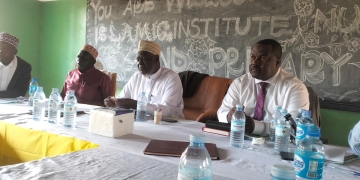
Alumna – London School of Economics and Political Science
Africa stands on the brink of economic transformation. As BRICS – Brazil, Russia, India, China, and South Africa – move towards a new global financial system, the era of U.S. dollar supremacy may be coming to an end. But what does this shift mean for Africa? Should we celebrate this potential new dawn or brace for unforeseen challenges?
The current financial system, established after World War II through the Bretton Woods agreement, placed the U.S. dollar at the heart of global trade. Institutions like the International Monetary Fund (IMF) and the World Bank were created to oversee this system, attaching stringent conditions to loans that heavily shaped the policies of African nations. For decades, African economies have wrestled with debt and instability under the weight of dollar dominance.
Now, BRICS proposes an alternative: a blockchain-driven system that bypasses U.S.-controlled financial networks, enabling trade in local currencies. The “BRICS Clear” system, designed to settle securities without dollar conversions, opens the door for African nations to diversify their trade and reduce reliance on Western intermediaries.
On the surface, this offers hope. Trading in national currencies could insulate African economies from the volatility of dollar fluctuations. It could also deepen ties with BRICS nations like China and India, both of which are major investors in African infrastructure. Freed from the dollar’s constraints, Africa could unlock new trade partnerships that reflect its growing economic potential.
However, we should be cautious in our celebrations. While moving away from the dollar could reduce dependency, it also carries risks. Many African nations, reliant on Western aid, investment, and remittances, could find themselves caught in a geopolitical tug of war. If the shift towards BRICS results in sanctions or backlash from Western powers, African economies might face instability. Moreover, countries with weaker financial systems may struggle to adapt to the technological demands of a blockchain-based system, making them vulnerable to cybersecurity risks.
Africa’s history during the Cold War offers a critical lesson. When the USSR collapsed, many African countries, having aligned themselves with the East, were forced to turn to Washington for financial rescue. The IMF and World Bank imposed strict borrowing conditions, which led to decades of indebtedness. We must avoid repeating this mistake. Rather than oscillating between East and West, African nations must seize this moment to create independent financial systems.
The rise of BRICS presents Africa with a unique opportunity. If our leaders are strategic, this could be a moment of empowerment. By investing in digital infrastructure, financial literacy, and institutional reforms, African countries can use this shift to assert their own economic sovereignty. This is a chance for Africa to diversify its global partnerships, engaging with both the West and emerging powers like China and Russia without becoming beholden to any one bloc.
The question for Africa is not whether to celebrate or mourn BRICS but how to prepare for a changing world. Our future lies in learning from the past and building resilient, homegrown financial systems that reduce reliance on external powers. If we do not take this opportunity, we risk being left behind – again.
Ciao
The writer, Gertrude Kamya Othieno
is a Political Sociologist
Alumna – London School of Economics and Political Science
gkothieno@gmail.com
AFRICA’S STRENGTH IS KNOWLEDGE










